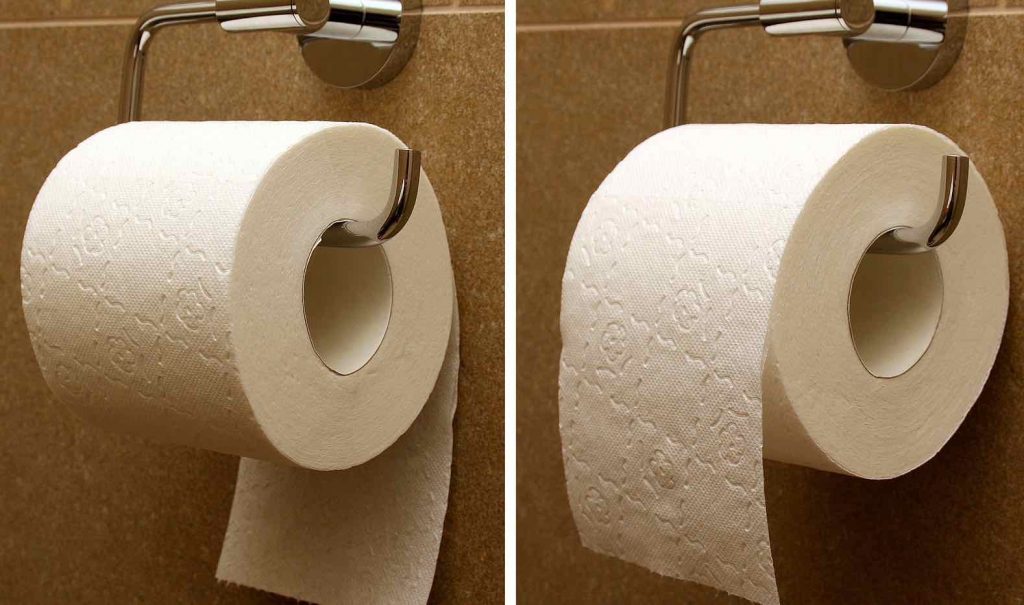
Did you know that if you spend too much time in dimly lit offices, you become a little dumber? Or that your ability to make decisions is governed by how hungry you are? And that your toilet roll can reveal your personality?
Sometimes you come across research which at first glance may seem a little odd. Or why not call a spade a spade: weird research. Nevertheless, if this research has been conducted according to the rule book fit for serious science, the results must after all be worth taking a look at? Or…?
Either way, below are some findings which all have in common that they at least are in the neighbourhood of the topic of leadership. As well as being… how shall we put it, perhaps a little odd. Or downright weird. But still offering rather entertaining reading at times. Enjoy!.
Your stomach makes your decisions. Are you the kind of person who trusts your gut instinct? Researchers at the University of Exeter, UK, have found an interesting connection between how we make decisions and how hungry we are.
When hunger hits, our behaviour changes and we become more emotionally governed. Or, in the words of the scientists, we become “hangry” (bad-tempered as a result of hunger). Scientists therefore think they have found a connection between our stomach and our decisions, where our hunger works as a “memory” for what we have done in similar situations before. But this all takes place subconsciously, we still think that we are using our brains when in fact our – empty – stomach is in the driver’s seat.
The concept of ”gut instinct” seems to have been given a new dimension…
The reason there is always a traffic jam when you are in a hurry. You have probably been in this situation many times. All of a sudden you are stuck in traffic. It is all moving very slowly for about five-ten minutes and then, all of a sudden, traffic clears. You have no idea what caused the queue, no accident in sight, no speed check… The jam just disappeared as quickly as it had appeared and the only lingering result is that you are late for work and you start your day in a foul mood.
Researchers at the MIT, Massachusetts Institute of Technology, have worked out why these types of traffic jams are formed. The culprits are all the drivers (of course not you!) who do not keep an appropriate distance to the cars around them, who change lanes frequently and overtake unnecessarily, all resulting in many cars having to brake and eventually clogging up traffic and creating queues. If everyone kept the same distance to the cars in front and behind, traffic would flow twice as fast, according to the scientists. They have been inspired by how large groups of migrating birds manoeuvre quickly, smoothly and safely by keeping the appropriate distance to the other birds around them, i e not just to the bird in front.
Since the researchers realise it is probably a hopeless mission to try to make drivers change their driving behaviour (again, of course not you!), they recommend car manufacturers adding obligatory speed controls at the front and rear of the car, which also communicate with other cars around you. This way traffic would flow better and both fuel consumption and the need for new and larger roads would decrease.
In addition, you (who are already driving very sensibly!) would arrive at work on time and in a better mood, which would most likely also improve your performance…
You listen better if you choose the correct ear. To listen (i e to really listen and not just hear) is a both complicated and energy-demanding task for your brain. If you also add some interfering background noise, for example laughter and other people talking in your office, focusing on any given task will become even harder. But there is a trick: turn the correct ear towards whoever you want to listen to!
Researchers at Auburn University, Alabama, did tests on a group of young adults, aged 19-28, whilst simultaneously exposing them to background noise and other incoming information. It has long been known that children more easily receive information through their right ear, as this ear is connected to the left brain half where most of our language is located. This seems to level out in the early teenage years. However, the study showed that adults too found it easier to understand what they were listening to if they used their right ears, especially if the background noise and additional input was numerous and disruptive.
So, the researchers’ advice to you when you are in a noisy environment and really want to catch what someone is saying: Turn your right ear towards your conversation partner!
How to become really bright. The winter usually means grey weather and limited hours of daylight. If you also work indoors in a badly lit work place, not much light will shine on you and this is bad news according to a study done at Michigan State University.
The researchers exposed a certain type of rats (who just like us humans are awake during the day and sleep at night) to bad lighting for four weeks. It turned out that the rats became considerably worse at solving problems they had learnt and been able to do earlier. But it was not just their memory which deteriorated. Also their ability to learn new things decreased substantially. Simply put, the rats became dumber. Given that these rats, at least on this particular point, resemble humans very much, the researchers are convinced that the same sad phenomenon applies to us humans too.
However, there is light at the end of the tunnel! When the same rats were then given access to plenty of good lighting during the following four weeks, their abilities returned to normal, which we hope is true for us humans too. The results of the study also support previous research which has shown that school children learn better in classrooms with large windows allowing for plenty of daylight.
So here we are, mid-February, and all we can do is to wait for spring to arrive and as it does, feel how our stupidity vanishes into thin air…
To conclude, we simply cannot refrain from sharing the following “research” with you. We would however like to make it very clear here and now that this does not belong in the category of serious science. But still, this study was done by Gilda Carle, a well-known American lecturer, author and TV host, who also has a PhD in Educational Leadership.
Your toilet roll reveals your personality. When Gilda Carle went to different friends’ houses, she noticed that the toilet roll hung in different ways in the bathrooms. It either hung with the loose end of the paper behind the roll, i e facing the wall, or it hung with the loose end in front of the roll. Gilda Carle began to ask herself whether there were any differences in the personalities of the people hanging the toilet roll one way or the other, so she asked ca 2000 random people of all ages how they hung their toilet rolls. She also looked into these people’s personalities and what they did for a living.
The results of Gilda Carle’s study can be summarised as follows: People who hung the toilet roll with the loose end at the front were more often dominant and confident people in leadership positions and used to being the decision-makers. Those who instead placed the toilet roll with the loose end towards the wall, were more laid-back, flexible and displayed more empathic characteristics.
It also turned out that the “loose end in the front” people more often turned the toilet roll around if they were putting it back at someone’s house where it originally had been hung rolled under, facing the wall.
So, time to go to the bathroom to check on the position of your toilet roll. And perhaps turn it around…



